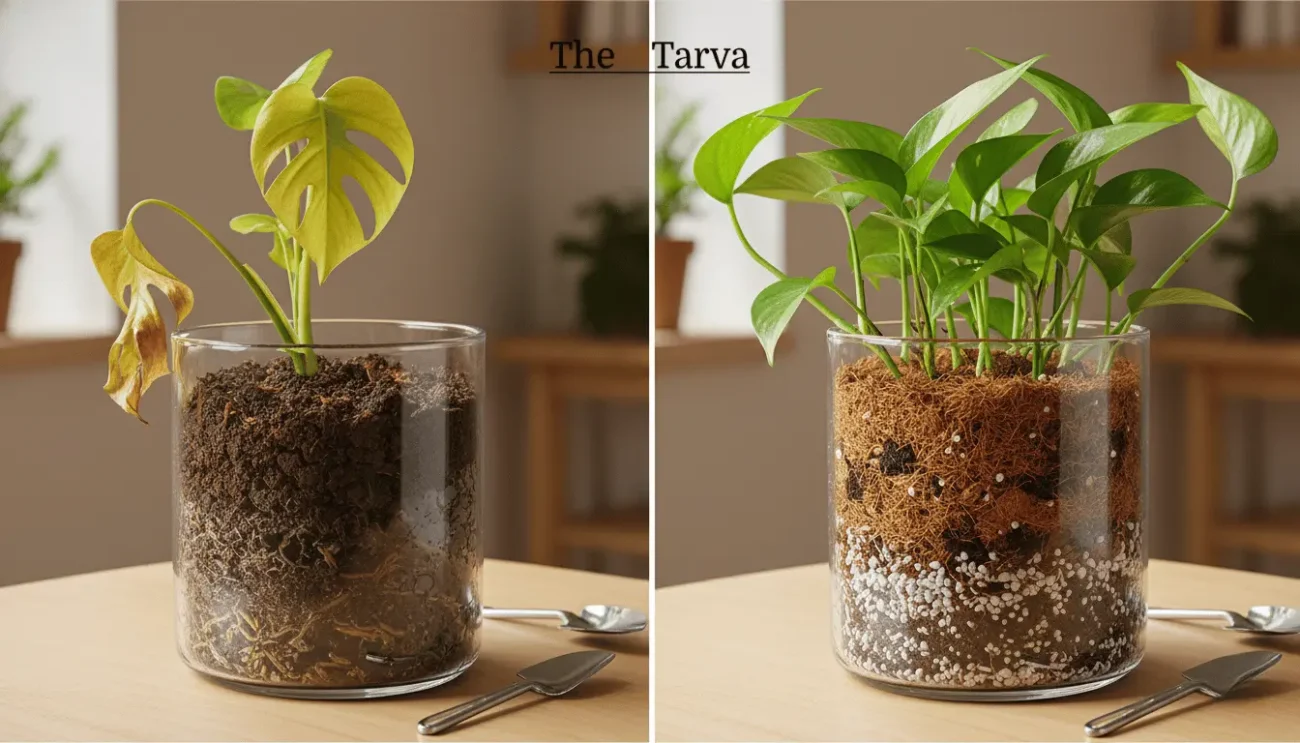Indian culture has always emphasized the balance between nature and health. Long before modern medicine, our ancestors relied on plants to heal everyday ailments, strengthen immunity, and promote overall well-being. This age-old knowledge, rooted in Ayurveda, is still relevant today. By growing medicinal plants at home, you can have a natural pharmacy within reach — one that is fresh, chemical-free, and sustainable.
In this guide, we’ll explore the top 10 medicinal plants every Indian home should have, their healing benefits, and practical tips for growing them successfully indoors or in your garden.
1. Tulsi (Holy Basil)
Tulsi is considered sacred in Indian households, both spiritually and medicinally. Known as the “Queen of Herbs,” it plays a vital role in Ayurveda and daily rituals.
Medicinal Benefits:
- Boosts immunity and protects against common colds and infections.
- Helps relieve cough, asthma, and other respiratory issues.
- Acts as a natural stress reliever and supports mental clarity.
- Known to regulate blood sugar levels.
How to Use:
- Brew Tulsi tea by boiling fresh leaves in water.
- Crush leaves and consume with honey for sore throats.
- Use Tulsi oil for skin infections.
Growing Tips:
Tulsi thrives in a sunny location and requires well-drained soil. Water moderately, avoiding soggy soil. Pinch off flowers to encourage leafy growth.
2. Aloe Vera
Aloe Vera is a household favorite, known for its skin-friendly and digestive benefits.
Medicinal Benefits:
- Aloe gel soothes burns, cuts, and rashes.
- Acts as a natural moisturizer for skin and scalp.
- Improves digestion and relieves constipation (when consumed in moderation).
- Boosts oral health when used as mouth rinse.
How to Use:
- Apply the gel directly to burns and wounds.
- Add a teaspoon of Aloe juice to water for detox.
- Use in homemade face packs for glowing skin.
Growing Tips:
Aloe prefers bright light, sandy soil, and minimal watering. Let the soil dry between watering to prevent root rot.
3. Neem
Neem has been celebrated as a “universal healer” in Ayurveda for centuries. Its antibacterial, antifungal, and antiviral qualities make it indispensable.
Medicinal Benefits:
- Purifies blood and detoxifies the body.
- Treats acne, eczema, and dandruff.
- Acts as a natural pesticide.
- Boosts oral health when used in toothpaste or mouth rinse.
How to Use:
- Boil neem leaves for skin-cleansing water.
- Apply neem paste to pimples or rashes.
- Use neem oil as an organic pesticide.
Growing Tips:
Neem grows best outdoors with plenty of sunlight. It adapts to large pots but thrives in soil with good drainage. Water sparingly.
4. Mint (Pudina)
Mint is not only refreshing but also an excellent digestive aid. It’s widely used in Indian cooking and traditional remedies.
Medicinal Benefits:
- Aids digestion and relieves bloating.
- Provides relief from nausea and headaches.
- Clears congestion during colds.
- Acts as a natural breath freshener.
How to Use:
- Brew mint tea for digestion.
- Crush leaves to inhale for headache relief.
- Add to chutneys, salads, or cooling drinks.
Growing Tips:
Mint is fast-growing and spreads quickly. Keep it in pots to control growth. Requires moist soil and partial sunlight. Prune regularly for fresh leaves.
5. Curry Leaves
Curry leaves are a staple in Indian kitchens, but they also pack numerous health benefits.
Medicinal Benefits:
- Improves digestion and prevents diarrhea.
- Rich in antioxidants, helps control cholesterol.
- Promotes hair growth and prevents premature greying.
- Supports liver health.
How to Use:
- Add fresh curry leaves to curries, dals, or chutneys.
- Make hair oil by boiling leaves in coconut oil.
- Chew raw leaves daily for better digestion.
Growing Tips:
Curry leaf plants need bright sunlight and moderate watering. Prune regularly to encourage new shoots.
6. Lemongrass
Lemongrass is an aromatic plant commonly used in herbal teas and essential oils.
Medicinal Benefits:
- Reduces anxiety and stress.
- Improves digestion and relieves stomach cramps.
- Acts as a natural mosquito repellent.
- Helps detoxify the body.
How to Use:
- Brew lemongrass tea for relaxation.
- Use the oil in diffusers for stress relief.
- Apply paste to repel insects naturally.
Growing Tips:
Requires full sunlight and well-drained soil. Water regularly, but avoid waterlogging.
7. Ginger
Ginger is a staple in Indian households, widely used for culinary and medicinal purposes.
Medicinal Benefits:
- Relieves nausea, colds, and sore throats.
- Improves digestion and reduces bloating.
- Anti-inflammatory properties help with joint pain.
- Boosts immunity.
How to Use:
- Add to tea with honey for cough relief.
- Use in curries and soups for flavor and health benefits.
- Consume raw with salt to ease nausea.
Growing Tips:
Plant fresh ginger rhizomes in rich, moist soil. Keep in partial shade. Water lightly but consistently.
8. Coriander (Dhania)
Coriander is both a flavorful herb and a medicinal plant.
Medicinal Benefits:
- Improves digestion and reduces acidity.
- Helps detoxify the body.
- Regulates blood sugar levels.
- Rich in vitamins A, C, and K.
How to Use:
- Add fresh leaves to salads, curries, and chutneys.
- Boil seeds in water for a cooling drink.
- Use as garnish for soups and dals.
Growing Tips:
Plant seeds in shallow containers with good sunlight. Harvest leaves regularly for continuous growth.
9. Ashwagandha
Ashwagandha is one of the most revered Ayurvedic herbs, known for its adaptogenic properties.
Medicinal Benefits:
- Reduces stress and anxiety.
- Improves sleep and boosts energy levels.
- Enhances memory and focus.
- Strengthens immunity and stamina.
How to Use:
- Consume as powder mixed with milk.
- Use capsules or tablets as per Ayurvedic recommendations.
- Apply paste externally for inflammation.
Growing Tips:
Prefers sandy, well-drained soil. Requires full sunlight and minimal watering.
10. Giloy (Guduchi)
Giloy, also called the “root of immortality,” is a powerful immune booster.
Medicinal Benefits:
- Reduces fever and fights infections.
- Improves digestion and detoxifies the body.
- Helps manage diabetes.
- Strengthens respiratory health.
How to Use:
- Consume Giloy juice for immunity.
- Use stem decoction to treat fevers.
- Apply paste for skin disorders.
Growing Tips:
Giloy is a climbing plant and needs a strong support. Place in partial sunlight and water regularly.
Conclusion
Growing medicinal plants at home is a tradition that blends health, sustainability, and natural living. By adding Tulsi, Aloe Vera, Neem, and others to your indoor or outdoor garden, you create a natural wellness hub that supports your family’s health in everyday life. These plants not only provide remedies for common ailments but also bring positive energy and freshness to your living spaces.
If you’re new to gardening, start small with easy plants like Tulsi, Aloe Vera, and Mint. As you gain experience, expand your home garden to include long-term healers like Ashwagandha, Giloy, and Neem. Over time, you’ll enjoy the benefits of a healthier, greener lifestyle.





